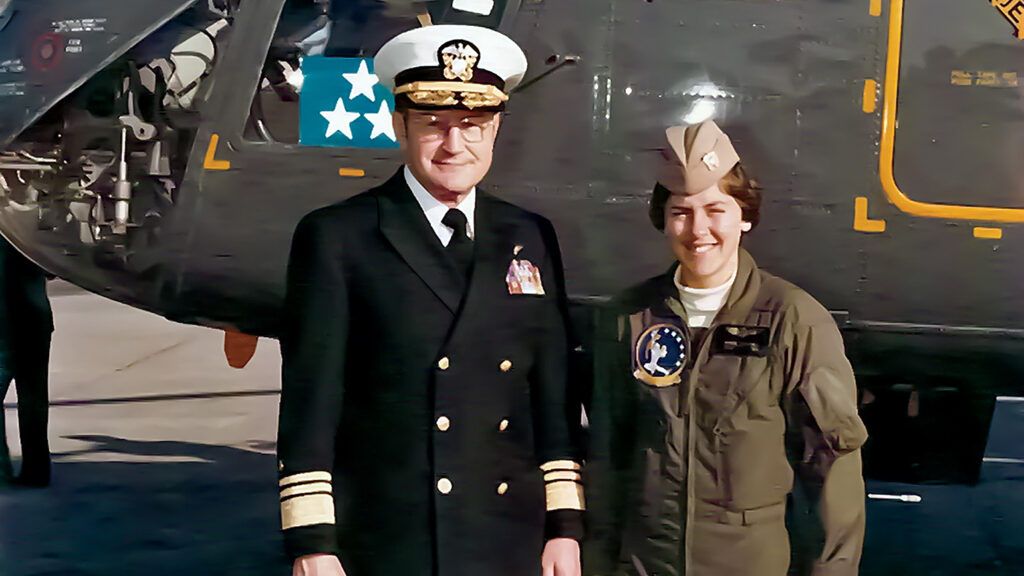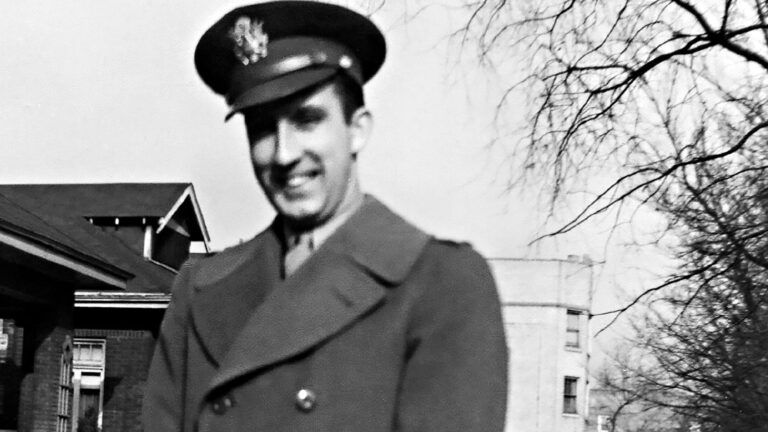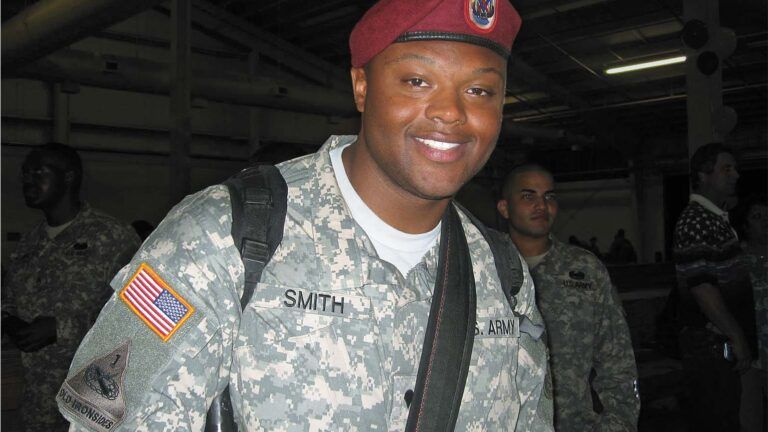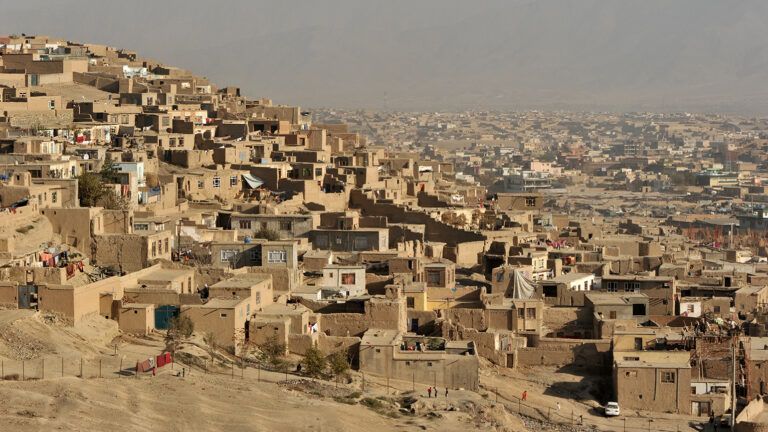Picture the fastest roller coaster you’ve ever been on. Now picture going 10 times faster. So fast that the g-forces compress your chest and make it hard to breathe. Minutes later, the bright light of day has changed to the darkness of space. You’re still accelerating, approaching 18,000 miles per hour. You’re near the outer limits of Earth’s atmosphere. If you unbuckle your seat belt, you’ll float right off your chair.
That’s what it was like for me on March 2, 1995, the first time I rocketed into space as a Space Shuttle astronaut. I went on to fly three more shuttle missions, including docking with the International Space Station. And on every one of them it felt as if my dad were right there with me, even though his dream of going into space had ended decades before.
I was 35 years old the day of that first takeoff. It was the culmination of a dream I’d nurtured since watching the Apollo 11 moon landing in 1969. Back then, girls like 10-year-old me had no hope of becoming an astronaut.
Somehow I held on to my dream. And in many ways, I owe my perseverance to the man I wished could have been beside me as I stared out the shuttle window at the awe-inspiring vastness of space. My father, U.S. Navy Vice Adm. William Lawrence.
My relationship with my dad was complicated. It was also the most important influence on who I was to become in life.
I want to tell you about that relationship for two reasons. One, I want you to know my dad the way I knew him. He was a man of indomitable will, unshakable faith in Jesus and unwavering commitment to duty and country.
He was also imperfect, as am I. We had to rebuild a relationship from scratch starting during my teen years. I inherited Dad’s personality, and he and I sometimes disagreed. Some of the biggest lessons I learned from him came from watching him deal with setbacks.
The biggest lesson I learned is that no family relationship is beyond the reach of God’s grace.
People remember my father as a Navy pilot who survived six years in the notorious Hanoi Hilton military prison in North Vietnam. Dad had been shot down during a mission in 1967 and declared missing in action. My family feared he was dead. I was not quite eight years old.
While in prison, Dad was tortured, including being thrown in a six-foot box called the Black Hole of Calcutta. Despite that, he became a leader among his fellow prisoners, helping devise a code to communicate by tapping on cell walls and floors. The famous tap code.
Among those prisoners was future Sen. John McCain, who later told me that what stood out about Dad was his resolute faith. Dad did not waste time feeling sorry for himself. He trusted God and did his best to stay positive by praying, composing poetry and mentally reliving the most meaningful moments of his life.
Dad, a distinguished graduate of the U.S. Naval Academy, had served as a naval test pilot before deploying to Vietnam. He wanted to become an astronaut but was disqualified by a heart murmur. Like many who serve in the military, Dad was away from home a lot. He was a loving father when I saw him, and I was devastated after he was shot down. But my day-to-day life didn’t change much. Family life as I experienced it had always been Mom, my two siblings and me.
The personality I inherited from Dad was pragmatic, disciplined and focused on solving problems. I hoped and prayed Dad was still alive. I also feared being disappointed. I tried not to dwell on it. To me, he was the father I never really knew…or would know.
Then, in 1973, Dad returned home as a hero.
It was a shock to learn he was coming home. Years earlier, Mom had concluded that Dad was no longer alive. She had remarried and let many of Dad’s things go. I was almost 13 when we learned he was coming home, too young to understand Mom’s feelings.
Now, suddenly, my siblings and I were with Dad’s parents at an air base in Tennessee watching freed war prisoners come down the steps of a military transport plane. Dad walked off the plane. He looked older than I remembered, older than he should have looked. Thinner.
I knew I should feel overcome with emotion and run into my dad’s arms. But after such a long time, he was like a stranger. I hugged Dad anyway—as good a hug as I could muster—and stared. I didn’t know what to say.
It didn’t take long for my confused feelings to resolve into action.
“I want to live with Dad,” I said to my mom.
He was undergoing rehabilitation near Washington, D.C., and earning a master’s degree in international affairs. He chose to remain in the Navy and was made a commander at a naval air station in California. That’s when I went to live with him.
He ended up marrying a woman named Diane Rauch, a physical therapist who had worked with returning soldiers. Though I stayed close with my mom, Diane became like a second mother to me.
Dad worked a lot, just as before. I was determined to find ways to spend time with him, to grow close to him. He loved football, so I watched games with him. He taught me to play tennis, and I emulated his commitment to competition and sportsmanship.
Though I asked about his war service, he didn’t want to talk about it. He told only positive stories, such as how God had helped him and how he had helped develop the tap code. He showed me the knuckle on his right hand, still swollen from years of tapping. He could tap out whole chapters of the Bible.
We had our first major disagreement when the Naval Academy made the historic decision to admit women.
My immediate thought was, I can become an astronaut!
Dad’s immediate response to me was: “Are you sure that’s a good idea?”
Dad wasn’t opposed to the idea of women serving in the military. He feared I wouldn’t fit in with the academy’s all-male culture. Deep down, he wanted to protect me.
“You will have to work twice as hard to get half as much recognition,” he warned me. “They will not go easy on you.”
“I’m ready,” I said.
“She’s ready, Bill,” said Diane. I was lucky to have Diane in my corner. She had an answer for all of Dad’s reservations.
Guess who was named superintendent of the Naval Academy the year after I enrolled?
That’s right. Dad.
Right away he was impressed with the caliber of the school’s female students. “The military would be foolish to pass up this talented supply of recruits,” he said.
I gave him a warning before graduation: “I’m going to hug you onstage.”
By graduation day, he’d greeted so many people during festivities, he forgot about my warning. I was twelfth in my class. I stepped up to get my diploma, and Dad automatically held out his hand. I batted it away and instead threw myself into his arms. The crowd roared.
Dad was a hard person to get to know. Looking back, I realize I got to know him by following in his footsteps and even going where he wasn’t able to go himself.
I became a pilot and flew on naval vessels, just like Dad.
I applied to NASA and trained to become an astronaut. Just like Dad.
Dad was in his sixties when NASA selected me for the astronaut program. He told me he was proud and just a little bit jealous. I was allowed to invite a small number of people to watch my first shuttle mission take off from Kennedy Space Center in Florida. Dad was at the top of the list.
There’s not a lot of time on a shuttle mission for rumination. My mission commander gave me a few minutes to gawk out the window when we first began orbiting the Earth. I thought how much Dad would have loved it.
“Time to get to work, Lawrence,” the commander said. I was busy for the rest of the mission. Dad was there with me, though, in spirit.
Seven months after that first shuttle launch, our relationship would change yet again. Dad underwent surgery at Bethesda Naval Hospital to correct his heart murmur. Something went wrong, and a piece of plaque dislodged from a valve and blocked blood flow to Dad’s brain. He had a stroke and went into a coma. He was placed on a ventilator.
I rushed to Washington, D.C., with the help of my shuttle commander, who flew me there himself.
Dad was partially paralyzed on one side, and his speech and memory were affected. I eventually moved to Virginia and spent weekends with Dad, helping care for him and just sitting around and talking.
After a lifetime of often businesslike conversations, Dad and I were now talking about everything. Space. Naval service. The academy. And, of course, football.
Dad’s faith was like everything else in his life. Not showy. Focused on the practical.
He and I didn’t talk about God much. We didn’t have to. When you serve in the military, you learn pretty quick that you are not the most important person in any given situation. You are part of a team, and you defer to the people in charge. Dad always knew that God is the ultimate one in charge. In that way that we’d developed, he knew that I knew that too.
The most important thing I learned from my relationship with Dad was the power of grace. When Dad was shot down, I feared a father I barely knew was gone forever. His return to my life was a gift from God, a gift that shaped my life and the person I am.
Dad taught me to see life itself as a gift. He took nothing for granted after his time in the Hanoi Hilton. He wasn’t an emotionally demonstrative person, but by the time he died, at age 75, I knew without a doubt that he loved me. And he knew that I loved him.
That was the greatest gift of all.
For more inspiring stories, subscribe to Guideposts magazine.





